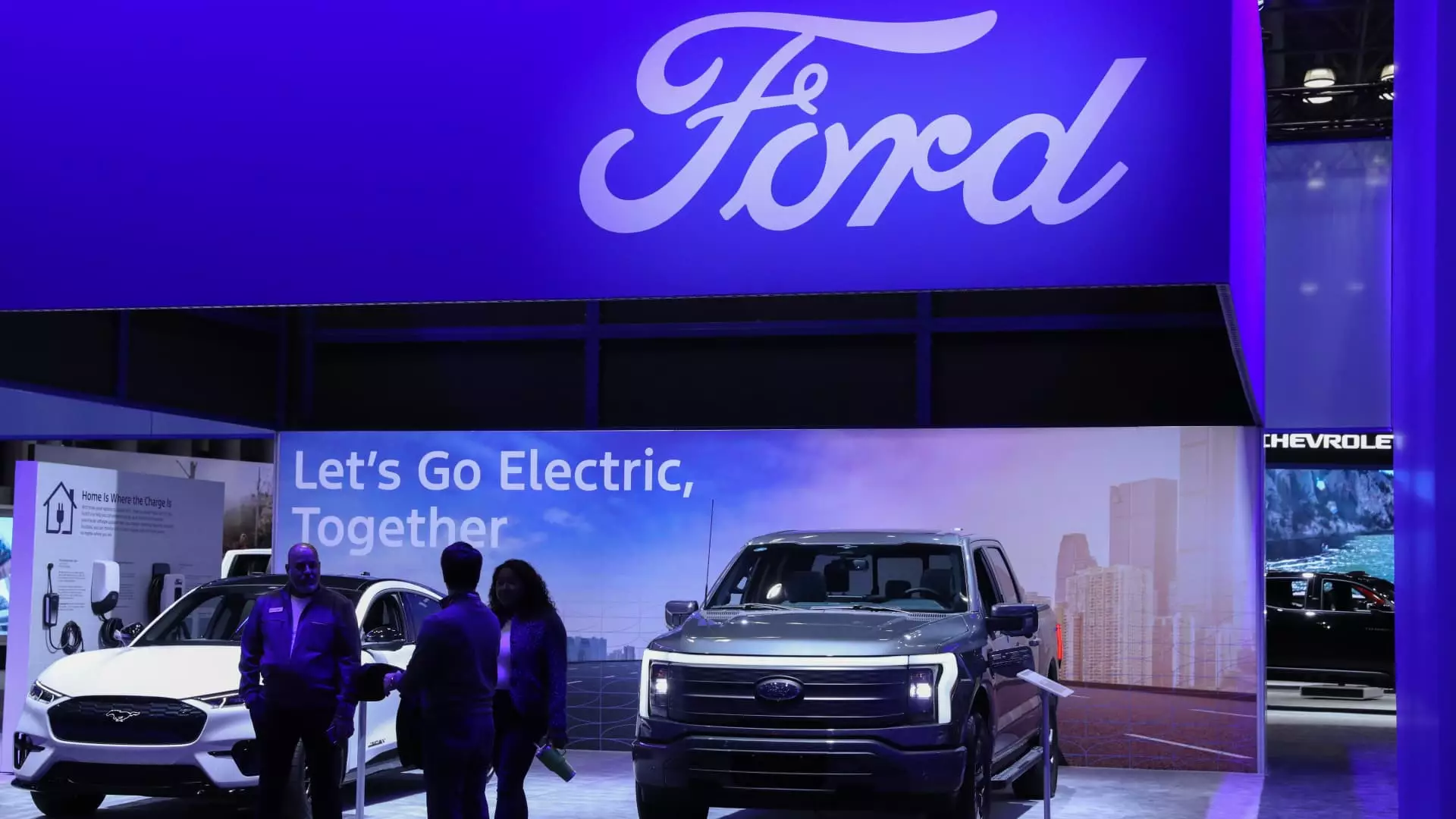Ford Motor’s recent announcement regarding the delay in production of a next-generation all-electric pickup truck and the cancellation of plans for a three-row electric SUV highlights a shift in the company’s electric vehicle strategy. Instead of focusing solely on all-electric vehicles, Ford has decided to prioritize the development of hybrid models and electric commercial vehicles. This change comes as a response to the evolving marketplace and customer preferences.
Ford CFO John Lawler emphasized that the company will concentrate on commercial land trucks and SUVs, where they have a competitive advantage. The decision to introduce a new electric commercial van in 2026, followed by two EV pickup trucks in 2027, reflects Ford’s commitment to building a capital-efficient and profitable electric vehicle business. While these changes are expected to enhance Ford’s long-term sustainability, they will incur immediate costs for the company.
Ford anticipates incurring a special noncash charge of approximately $400 million for the write-down of certain manufacturing assets related to the canceled three-row SUV. Additionally, there may be further expenses and cash expenditures of up to $1.5 billion associated with the strategic realignment. Lawler stated that future capital expenditure plans will involve a shift from spending 40% on all-electric vehicles to spending 30%, although no specific timeframe was provided for this transition.
Originally, vehicle production at the new $5.6 billion Tennessee plant was scheduled to commence next year. However, Ford has decided to delay the production of the next-generation all-electric pickup truck until 2027. The company still plans to initiate battery cell production at the Tennessee site in 2025. These adjustments reflect Ford’s responsiveness to market dynamics and the need to ensure a profitable electric vehicle business.
Ford’s CFO emphasized the importance of being agile and responsive to customer feedback. By observing market trends and customer preferences, Ford aims to offer a diverse range of electrification choices to meet evolving demands. The decision to launch a commercial van assembly operation in Ohio in 2026 underscores Ford’s commitment to expanding its electric vehicle portfolio in response to customer needs.
Ford’s strategic realignment signifies a fundamental shift in its approach to electric vehicles. By focusing on hybrid models and electric commercial vehicles, Ford aims to achieve sustainable growth and profitability in the electric vehicle market. The decision to delay the production of certain models reflects Ford’s willingness to adapt to changing market conditions and prioritize capital-efficient initiatives.
Ford’s revised electric vehicle strategy underscores its commitment to profitability, sustainability, and customer-centric innovation. By aligning its product portfolio with market demands and capital-efficient investments, Ford aims to secure a strong foothold in the rapidly evolving electric vehicle landscape. As the automotive industry transitions towards electrification, Ford’s strategic realignment positions the company for long-term success in the electric vehicle market.


Leave a Reply